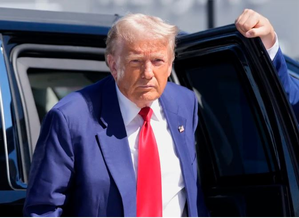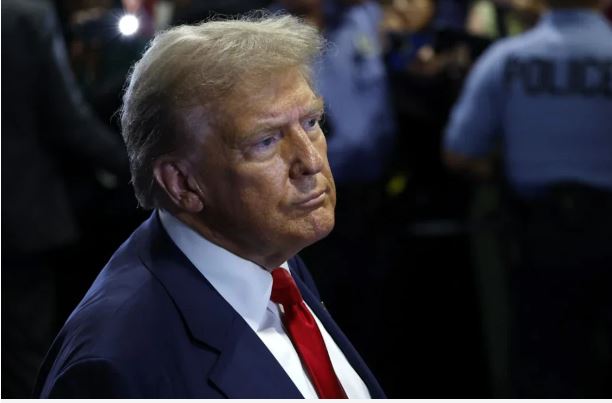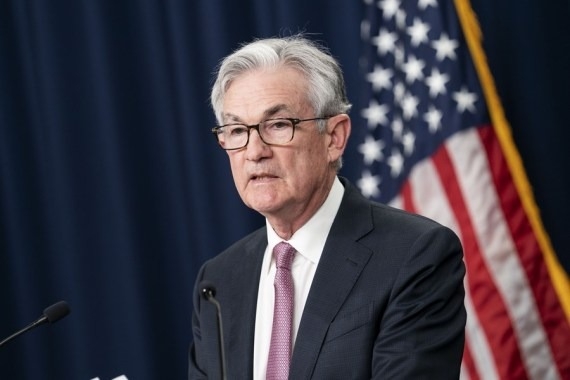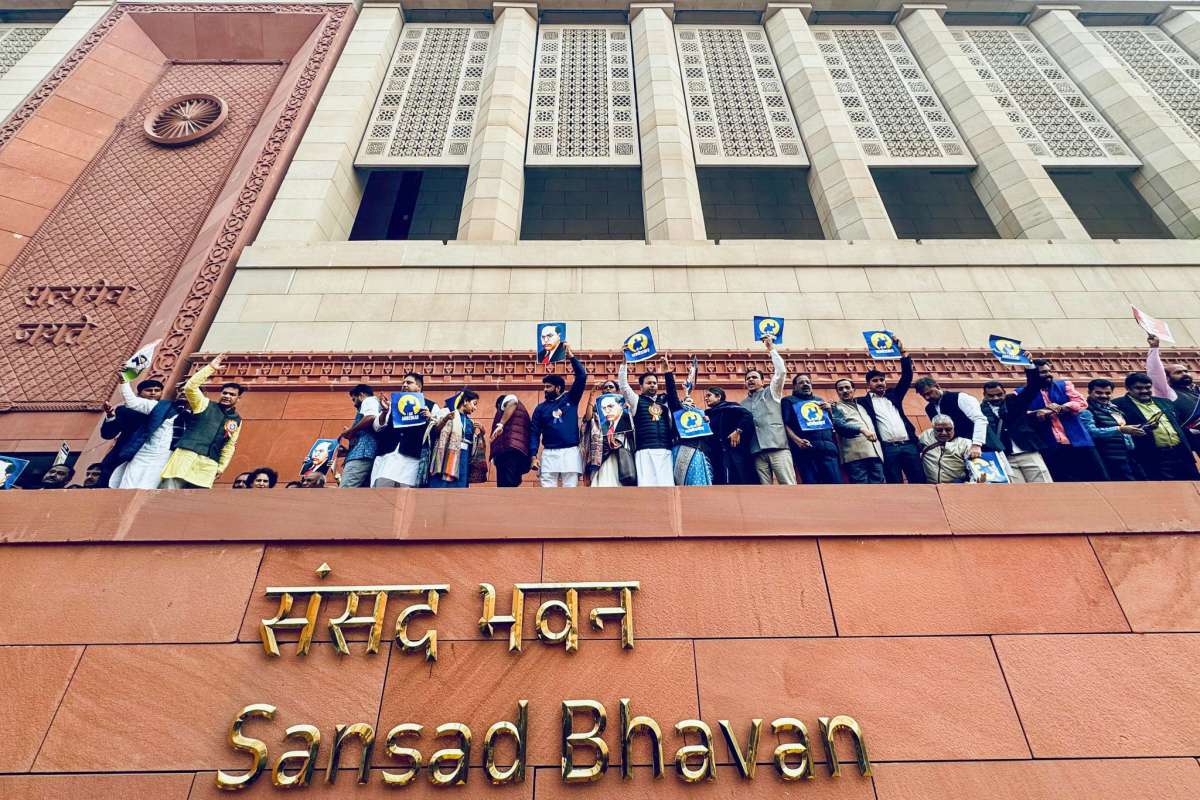The US has said it’s concerned about TikTok collecting vast swaths of user data, including sensitive information on viewing habits, that could fall into the hands of the Chinese government through coercion….reports Asian Lite News
TikTok faced off with the US government in federal court on Monday, arguing a law that could ban the platform in a few short months is unconstitutional while the Justice Department said it is needed to eliminate a national security risk posed by the popular social media company.
In a more than two hour appearance before a panel of three judges at a federal appeals court in Washington, attorneys for the two sides — and content creators — were pressed on their best arguments for and against the law that forces the two companies to break ties by mid-January or lose one of their biggest markets in the world.
Andrew Pincus, a veteran attorney representing the two companies, argued in court that the law unfairly targets the company and runs afoul of the First Amendment because TikTok Inc. — the US arm of TikTok — is an American entity. After his remarks, another attorney representing content creators who are also challenging the law argued it violates the rights of US speakers and is akin to prohibiting Americans from publishing on foreign-owned media outlets, such as Politico, Al Jazeera or Spotify.
The law before this court is unprecedented and its effect would be staggering, Pincus said, adding the act would impose speech limitations based on future risks.
The measure, signed by President Joe Biden in April, was the culmination of a years-long saga in Washington over the short-form video-sharing app, which the government sees as a national security threat due to its connections to China.
The US has said it’s concerned about TikTok collecting vast swaths of user data, including sensitive information on viewing habits, that could fall into the hands of the Chinese government through coercion. Officials have also warned the proprietary algorithm that fuels what users see on the app is vulnerable to manipulation by Chinese authorities, who can use it to shape content on the platform in a way that’s difficult to detect.
Daniel Tenny, an attorney for the Justice Department, acknowledged in court that data collection is useful for many companies for commercial purposes, such as target advertisements or tailoring videos to users’ interests.
The problem is that same data is extremely valuable to a foreign adversary trying to compromise the security of the United States, he said.
Pincus, the attorney for TikTok, said Congress should have erred on the side of disclosing any potential propaganda on the platform instead of pursuing a divesture-or-ban approach, which the two companies have maintained will only lead to a ban. He also said statements from lawmakers before the law was passed shows they were motivated by the propaganda they perceived to be on TikTok, namely an imbalance between pro-Palestinian and pro-Israel content on the platform during the war in Gaza.
But the panel — composed of two Republican and one Democrat appointed judges — expressed some skepticism, pressing the attorneys on TikTok’s side if they believe the government has any leeway to curtail an influential media company controlled by a foreign entity in an adversarial nation. In parts of their questions about TikTok’s foreign ownership, the judges asked if the arguments presented would apply in cases where the US is engaged in war.
Judge Neomi Rao, who was appointed by former President Donald Trump, said the creators suing over the law could continue speaking on TikTok if the company is sold or if they choose to post content on other platforms. But Jeffrey Fisher, their attorney, argued there are not interchangeable mediums for them because TikTok which has 170 million US users is unique in its look and feel, and the types of audiences it allows them to reach.
Paul Tran, one of the content creators who is suing the government, told reporters outside the courthouse on Monday that a skincare company him and his wife founded in 2018 was struggling until they started making TikTok videos three years ago. He said they had tried to market their products through traditional advertising and other social media apps. But the TikTok videos were the only thing that drove views, helping them get enough orders to sell out of products and even appear on TV shows.
TikTok truly invigorated our company and saved it from collapse, Tran said.
Currently, he noted the company – Love and Pebble – sells more than 90 per cent of its products over TikTok, which is covering the legal fees for the creator lawsuit.
In the second half of the hearing, the panel pressed the Justice Department on First Amendment challenges to the law.
ALSO READ: Starmer Renews Special Ties With the US












